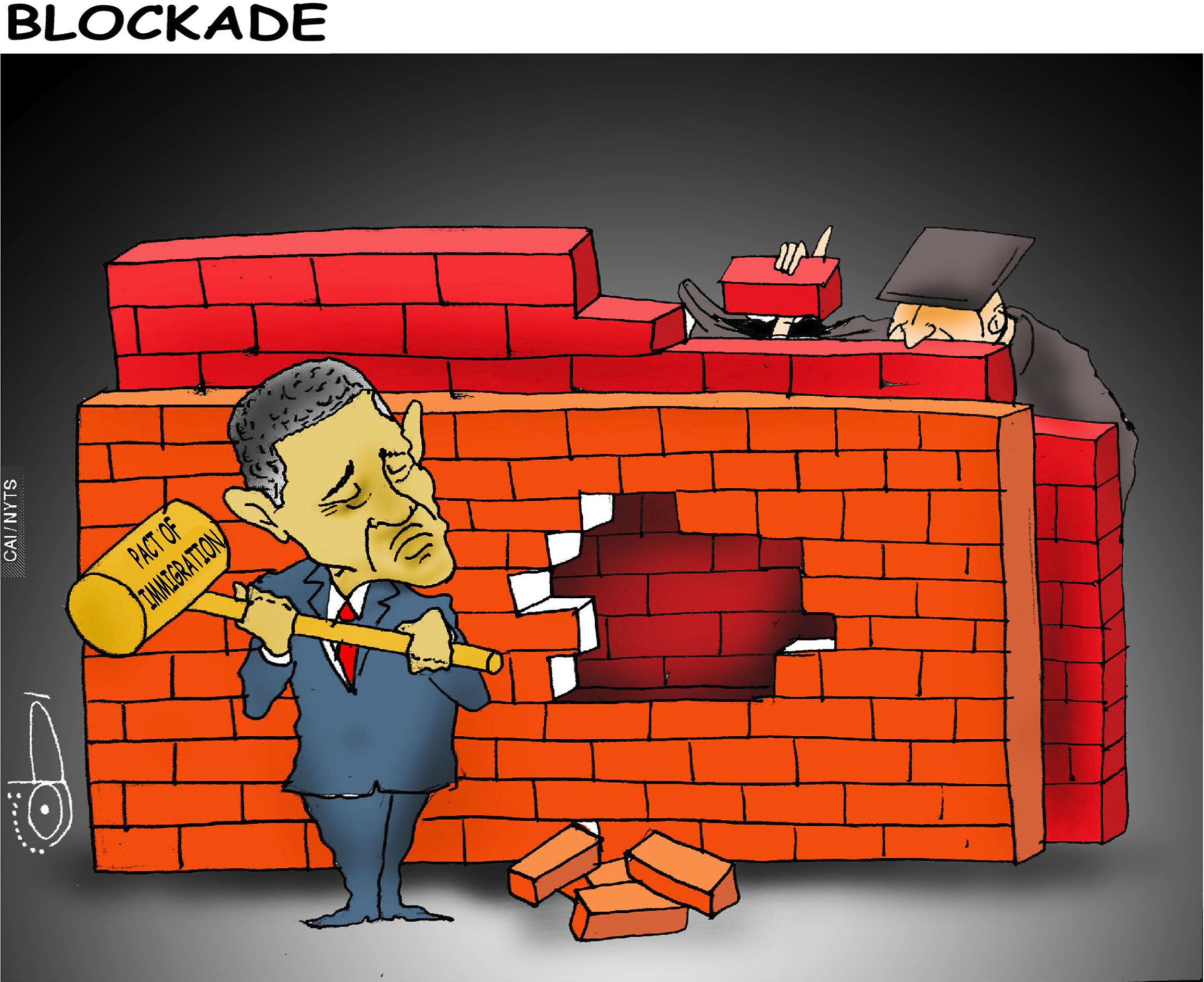During Watergate, Henry Kissinger's mordant wit leavened the unpleasantness: "The illegal we do immediately; the unconstitutional takes a little longer." President Barack Obama often does both simultaneously, using executive authoritarianism to evade the Constitution's separation of powers and rewrite existing laws.
The week before last, however, the Supreme Court took a perhaps momentous step toward correcting some of the constitutional vandalism that will be Obama's most significant legacy. The court agreed to rule on Obama's unilateral revision of immigration law.
Seeking re-election in 2012, Obama stretched the idea of "prosecutorial discretion" — supposedly "on an individual basis" — to cover a delay in efforts to deport approximately 770,000 persons who were brought to America illegally as children. But he said that with this he had reached the limit of his powers: "If we start broadening [this executive action], then essentially I would be ignoring the law in a way that I think would be very difficult to defend legally."



















With your current subscription plan you can comment on stories. However, before writing your first comment, please create a display name in the Profile section of your subscriber account page.